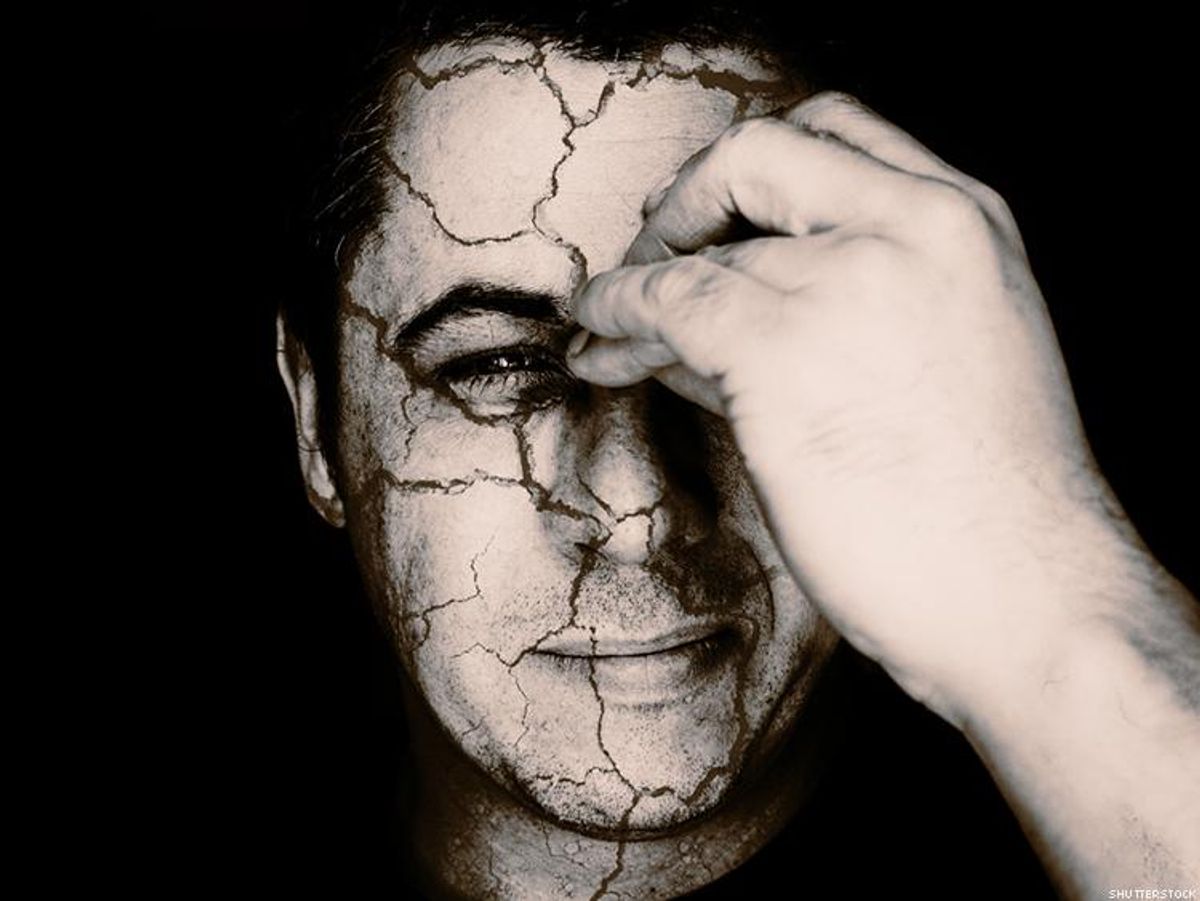I’ve been HIV+ for a long time, like twenty years. I’m doing well on the meds and I feel really fortunate for that. But the meds have also changed the way I look. I’ve had some facial wasting. I did the filler thing and that helped. I’m not a vain person, at least I don’t think I am. Still, I look in the mirror and I can see how the effects of the meds. Call me shallow, but I just can. And I can also see how HIV meds have affected my friends the same way. What do I do?
My clients often talk to me about their fears that HIV medications can change the way they look, especially those who have been living with HIV for many years. They worry about facial wasting, in particular. I have also had clients express concerns that their eyes might not be as clear, that they might look pale, that their skin is not as vibrant, that their features have “sharpened.” They worry that their meds might cause premature aging in their face. They worry.
To be honest, I don’t usually see what they’re talking about. On the other hand, I also know that we are the experts on our own appearance. We may notice changes that aren’t so visible to others. And as a therapist, I also know that when we’re feeling anxious, we can find the simplest, tiniest change, and worry that we are turning into Frankenstein. That’s human nature. It’s the result of living in our beauty-obsessed culture. And it often goes with the territory for someone who is living with HIV.
No doubt about it, changes in the way we appear to others can be scary! Here are some ideas to help you to cope:
First, fear is normal. HIV and its treatment can bring up a lot of emotions, and fear is one of them. So don’t fight the fear factor. Think of fear as a message from your inner self that there is something for you to pay attention to. And then pay attention.
Don’t keep it in. I know it’s not easy to talk about how your HIV might affect the way you appear to others. And yes, I agree that you may or may not get an honest answer. But one way to approach this conversation is just letting someone know you need a listening ear, no feedback, no answers required. A chance to vent without being judged. Releasing your fears into the light of day can help to take their power away.
Also keep in mind that when left with our own thoughts, our minds can go to some dark places. Before you follow the next “what if” down the rabbit hole, sit down with someone who can help you keep your perspective.
Get some real information about what to expect. It’s always a good idea to talk to your doctor about any concerns you have about the effects of HIV and its treatment. No question is too unimportant to ask. If it affects your quality of life or your self-esteem, then it’s important.
Get some real information about what you can do. In the event your doctor tells you something you’re not happy to hear, this is also a good time to have a talk about what you can do. Sure, you’re not in control of everything. But you may learn what you can do to help take even better care of yourself.
Message to the person in the mirror: You are not all about your appearance! In the world we live in, the media is constantly telling us how we need to look and act if we want to be successful and loved. But most of that is marketing hype. You are not the sum total of your appearance. And you are certainly more than your HIV. It’s what’s inside that counts. That’s where the real beauty lies. So let the real you shine through! While we’re on the subject, people who really matter in your life are there because of the real you.
Make peace with your body. Our bodies can seem to betray us: the aging process, our genetics, lifestyle decisions… chronic conditions like HIV. But waging an internal battle, you against your body, just creates more fear and stress. Give up the fight by accepting that change is part of life, including changes in your appearance. Get control where you can, by taking the best possible care of yourself.
Remember: Change cuts both ways. Let’s not focus only on the potential of changes you would rather avoid. Keep in mind that your self-care and treatment regimen is most likely benefiting you in ways that outweigh any downside. The biggest change that HIV medications cause is changing the odds of long-term survival in your favor. Now that’s change to celebrate!
You, your HIV, and the person in the mirror. It’s only human to be concerned about how you appear to other people. But keep your focus on the big picture (and not just what you see in the bathroom mirror): Your health and wellness. People you care about and who care about you. Building toward your future. Life is good!
Gary McClain, PhD, is a therapist, patient advocate, and author in New York City, who specializes in working with individuals diagnosed with chronic and catastrophic medical conditions, their caregivers, and professionals. Check out his website.











































































